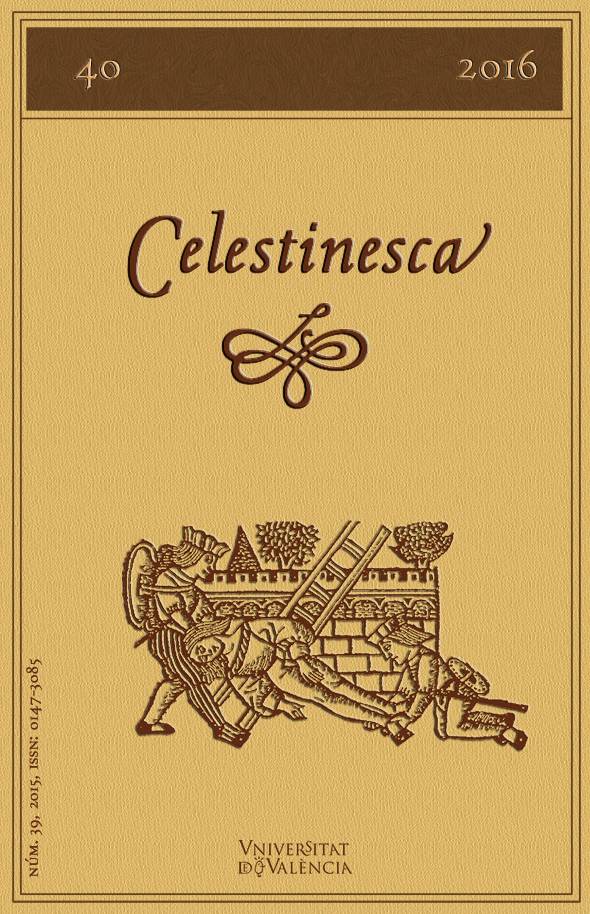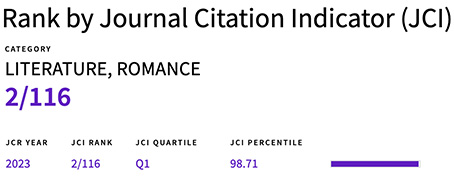Voyeurism and Shame: The Pleasure of Looking and the Pleasure of Being Looked at in La Celestina
DOI:
https://doi.org/10.7203/Celestinesca.40.20193Keywords:
Voyeurism, Scopophilia, Shame, Power, Desire Abstract
Abstract
Vision and the transgressive gaze are essential features on the psychosexual make-up of Celestina's characters. As critics note, ocular economies condition the way in which characters negotiate interpersonal relations of power and desire as articulated by the phallic gaze. This study is an analysis of the interplay between scopophilia and shame in Pármeno sexual rendezvous with Areúsa and in Calisto's encounters with Melibea in the garden. Areúsa and Melibea's keen sense of shame deters the transgressive gaze of Celestina and Lucrecia respectively, but through cunning and erotic arousal, their shame recedes to give way to an enhanced sexual pleasure. This study proves that both Areúsa and Melibea reject the phallic gaze of the voyeuses out of shame. Then, their sense of shame is undermined by Celestina’s masterful discourse and strong sexual arousal.
 Downloads
Downloads
Downloads
Published
How to Cite
-
Abstract740
-
PDF1579
Issue
Section
License
![]() Celestinesca is committed to the dissemination of knowledge, that is why access to its contents is free and is ruled by a Creative Commons Attribution-NonCommercial-NoDerivatives 4.0 license.
Celestinesca is committed to the dissemination of knowledge, that is why access to its contents is free and is ruled by a Creative Commons Attribution-NonCommercial-NoDerivatives 4.0 license.
Authors retain the rights to their works. Therefore, they can disseminate them and deposit them in the repository, institutional or not, that they wish. However, they are kindly requested to do so by providing the full bibliographic reference and the corresponding DOI.
Celestinesca does not charge authors for submitting, processing, reviewing or publishing their articles.





